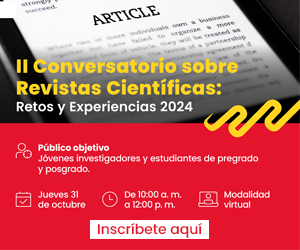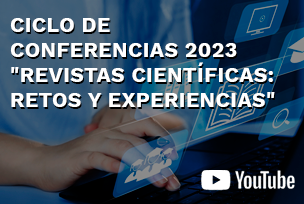Impact on mental health of children and adolescents in lima city in the context of COVID-19
DOI:
https://doi.org/10.20453/rph.v15i1.4301Abstract
Mental health problems in children and adolescents have a high incidence in Peru and worldwide. However, studies on the psychological repercussions of the pandemic of Covid-19 on children and adolescents in Peru are insufficient. The general objective was to identify the magnitude of the major mental health problems in the child and adolescent population in Lima (Peru) related to Covid-19. This study was descriptive-transversal. The sample was of 2639 children and adolescents. We used the following instruments: demographic and socioeconomic file; Questionnaire on experiences, behaviors and impact related to Covid-19; International Neuropsychiatric Interview for Children and Adolescents; Family Violence Questionnaire; “How is your Family” Questionnaire; Adolescent Family Process Scale; Parental Behavior Inventory and Questionnaire on determinants of access to health services in Peru. Among issues of parental behavior perceived by adolescents, we found that almost a half of them seldom experienced conflicts with their mothers or fathers. Fear to have some beloved being ill or dead because of Covid-19 was the most frequent among children between 6 to 11 years old and adolescents (63.0% and 63.3%, respectively); 44.4% of children from 1.5 to 5 years old, 60.3% of children from 6 to 11 years old and 59.3% of adolescents suffered physical abuse. The fear of separating from an attachment figure is present in 45.7% among children from 6 to 11 years old. More than 80% (n = 2227) of the sample had some kind of health insurance. One third (n = 870) had emotional and behavioral problems, of which 714 did not received care. It is concluded that, in the six months prior to the survey, the major clinical disorders, as well as physical, psychological and sexual abuse in the child and adolescent population increased compared with pre-pandemic time. Frequency of communication between parents and their children from 1.5. to 11 years old had some improvement. Access to services is a critical point in care.
Downloads
Downloads
Published
How to Cite
Issue
Section
License
All articles published in the Revista Psicologica Herediana are under a Creative Commons Reconocimiento 4.0 International license.
The authors retain the copyright and grant the journal the right of first publication, with the work registered with the Creative Commons License, which allows third parties to use what is published whenever they mention the authorship of the work, and to the first publication in this magazine.
Authors can make other independent and additional contractual agreements for the non-exclusive distribution of the version published in this journal, provided they clearly indicate that the work was published in this journal.
The authors can file in the repository of their institution:
The research work or thesis of degree from which the published article derives.
The pre-print version: the version prior to peer review.
The Post-print version: final version after peer review.
The definitive version or final version created by the publisher for publication.





